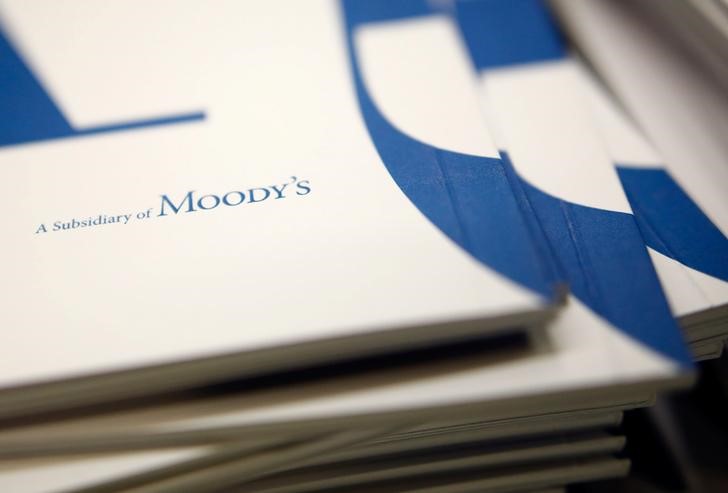By David Brooke
LONDON (LPC) - Investors are calling on ratings agencies to downgrade leveraged loans with overly aggressive documentation, as weak lender protection continues to cause concern.
Moody’s European covenant quality indicator hit a record low in the fourth quarter of 3.83, which is the lowest figure since the ratings agency established the monitor in 2012. The statistic focuses on high-yield bonds but analysts say loans are in a similar state.
Covenant-lite loans, which offer little protection for lenders, have become established as the market norm. Several services, including Moody’s, Fitch-owned Covenant Review and Debt Explained have been established to analyze documentation and inform investors on individual deals.
Some investors would like to see ratings agencies go further in assessing the risks that flexible documentation poses to lenders and downgrade loans with offending documents, particularly loose restricted payment tests and the ability to take dividends from day one.
“I think the agencies have talked a bit about the impact of [covenant-lite] and what they think the recovery rates are. Our frustration is that they talk a good game, but you’re not seeing that reflected in the actual ratings,” a senior investor said.
Flexible document packages raise several unknowns around individual companies and the actions that their private equity owners could take in a range of scenarios, and is therefore not weighted heavily in the final rating.
“Our credit ratings are based on the analysis of issuers’ fundamentals, whereas the covenant scores focus purely on the details of a specific bond’s documentation,” said Lisa Gundy, chief covenant officer at Moody’s.
“Flexible covenants, allowing the ability to distribute cash, remove security protection or increase debt, can be a reflection of an aggressive financial policy.”
LOST IN TRANSLATION
Financial data company Refinitiv, the parent company of LPC, scored 4.77 on Moody’s indicator. It was the lowest ranked covenant package in the European market in 2018 and one of the biggest deals of the year.
The score was linked to cash leakage, flexibility on investments, leveraging and structural subordination. The company scored a B2/B/BB from ratings agencies and the dollar and euro loan tranches priced at 375bp and 450bp over Libor/Euribor respectively.
Private equity firms prioritize the flexibility in credit documentation highly. The freedom gives them options to reach high return targets and managed credits through a downturn.
Many have taken active buy and build strategies with acquisitions which see sponsors tapping the loan market regularly and investors and lenders are willing to give flexibility to sponsors on good credits.
For banks, repeated add-on financings provide a reliable revenue stream. But the frustration remains that looser restrictions are not being factored into ratings.
“If loans with weak documents are issued then they ought to be rated substantially below what a normal loan would be rated and I would hope to see more price distinction around that,” the senior investor said.
The lack of lender protection in covenant lite loans is expected to hit recovery rates. Recoveries in the leveraged market have averaged below 60% since 2015, according to Fitch, in roughly the same period that senior debt to Ebitda levels have risen to 4.5 times-5 times, reflecting the risk of weakening covenants in the last few years.
“On their own covenants are rarely enough to move issuer default ratings, which capture the relative default risk of credit based on business model, execution risk and cash flow and leverage metrics,” said Ed Eyerman, managing director at Fitch.
“Covenants can also impact recovery assumptions, especially if collateral value can be diluted or stripped out.”
While some would like to see covenants factored more heavily into individual ratings, ratings agencies' role in the market makes it difficult to curb risk.
“Rating agencies are paid by issuers, so they might be hesitant on that account, since they’re not paid for by investors. They’re not independent,” an analyst said.
A second investor said: “I do not think rating agencies are very useful when it comes to risk analysis. A rating is a probability of default and in my view loose docs reduce chances of defaults.”
BLOW UP
An influx of cash into separated managed accounts in addition to record issuance of CLO funds in 2018 – US$128bn in the US and US$27.29bn in Europe -- means that investors have very little room to be more selective about credits.
“Investors have lacked bargaining power over the past few years and they turn to ratings because they can have an impact on arranger distribution strategies,” said Eyerman.
Few see the trend of covenant-lite loans reversing. While the summer saw a number of deals flex on documentation, the hope for a bigger shift in market sentiment was short-lived.
But barring a blow up on an individual deal, many see market conditions continuing to favor sponsors for now, as investors are penalized for holding cash and have few opportunities to invest due to a thin pipeline in early 2019.
“Liquidity is chasing very few assets. But the more marginal credits will be found out and the banks will lose money. That will temper the banks’ behavior,” said one banker.
